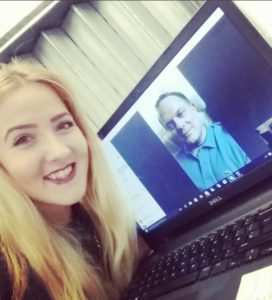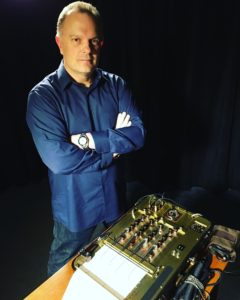
The Lie Detective: TCC Asks The Expert
With over 25 years’ experience and over 10,000 polygraph tests performed, private investigator and polygraph expert Dan Ribacoff hosts the new Channel 4 show, The Lie Detective.
According to Dan, deception is a survival tool; everyone has it and everyone uses it. We are all programmed the same way and can ‘leak deception’ during conversation – this is when our bodies react certain ways to deception on a sub-conscious level when engaging in face-to-face communication. Fear, and in this case, fear of the truth, creates defensive body language as an engrained instinct within ourselves.
In the series, I’m teaching people how to learn to assess credibility in their daily lives. It is a beautiful part of the show and I am so grateful that they let me show that. By explaining what the guilty person did that showed they were lying, we can see it in realtime. This teaches how to discover lies in your everyday life.
Why do people lie?
There are four reasons why people lie:
– They are ashamed of what they have done
– They don’t want to hurt someone
– They want to have revenge
– They want to steal from you

Our Marketing Executive, Elle Finn, interviewing Dan via Skype – London to New York
Was private investigation a career choice from your childhood?
Not quite. It was a childhood dream of mine to become a police officer but I ended up in the family business of jewellery manufacturing and diamond dealing. To maintain my interest in law enforcement, I decided to become a reserve police officer for the NYPD in my spare time. Eventually I combined the two to form my own company that conducted investigations on behalf of insurance companies that insure jewellers. I developed my field from jewellery thefts and heists into kidnappings, stolen artwork and abuse cases. I often used my polygraph test to filter the lies from the truth and thus through years of exposure and practice, I became a human lie detector.
“Without truth there is only turmoil”
What is the most effective way to get accurate readings from the polygraph test?
You must ensure your questions are very specific. I find formatting the questions in a ‘did you…’ format keeps the polygraph test simpler and more efficient. If you minimise the amount of subjects within the question, the polygraph works exceptionally well. For example, instead of ‘Did you go to the bank today and participate in the heist with a gun?’ you should ask ‘Did you rob the bank?’
Why do you think a TV show about lying will resonate so strongly with the audience?
It is a very humanistic and social topic, because everyone has unanswered questions in previous or current relationships. People are often scared to ask the difficult questions. They don’t want to have open conversations out of fear; fear of the answer, of how they will appear to others, of offending or of what will come after. The beauty of The Lie Detective is it forces people to ask the difficult questions and many times during the filming, the participants would try to refuse to ask their partner the questions. When they finally did, they would find closure. The information to unanswered questions left them able to make informed decisions on what to do next in their lives.
“The truth can be a bitter pill to swallow.”
When filming did you discover anything new that you were previously unaware of?
I have worked as a polygraph tester on the Steve Wilkos show in the US for 8 seasons now, along with a lot of other appearances, so the camera aspect doesn’t bother me. I have found that the British couples are far more polite, proper and closed than the US couples. The Brits don’t seem to like talking about feelings! It was great to be on a UK-based show that enabled me to peel back the emotional layers and see people blossom who had previously struggled with sensitive discussions.
“We are directly impacting the lives of others with the truth.”
What consequences do you want to occur as a result of the show being broadcast?
I’d hope the show will serve as a platform for people to tap into their emotional wellbeing and create a change within social expectations and procedures. People are far too polite and end up lying all the time to carry out social conventions of conversation. In terms of more personal interactions, by asking difficult questions that can shake the foundations of a relationship, the show fortifies communication and as a direct correlation, couples can see improvements in their relationship. We are hoping to change cultures by illustrating the progress that can occur by simply being honest.

The Lie Detective airs Friday 23rd September at 10pm on Channel 4 – TCC Freelancers, June Wood and Laura Bryant, both editors, worked on the programme.

